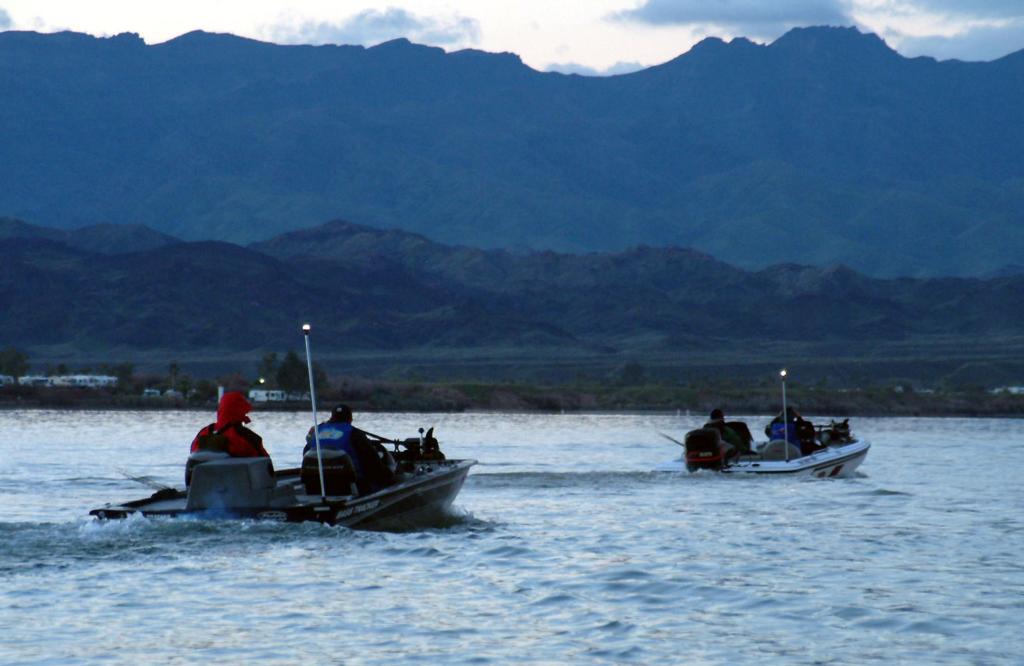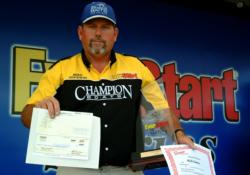2006 Stren Series preview: Western Division, Lake Havasu
Record-setting field takes on Arizona lake to start season

The Stren Series Western Division kicks off the 2006 season on Arizona’s Lake Havasu, a lake that continues to grow in familiarity with anglers who have been fishing the division since its inception in 2003.
Reaching a historic milestone, the $6 million Stren Series heads to Lake Havasu City, Ariz., Feb. 1-4 with a record-setting full field of 200 pros ready to compete for a share of $262,000. The Havasu field is the largest Stren Series Western Division field since the division’s introduction and the largest ever for a professional bass tournament held in the Western United States.
On the line for Western Division anglers this season is not only a chance to compete in the $1 million Stren Series Championship in November, but also a shot at the $2 million Forrest Wood Cup, to be held in Hot Springs, Ark., in 2007.
But to get to there, anglers know it all starts with a successful Lake Havasu event.
According to local pro Mike Goodwin, Havasu is in excellent shape despite the cooler-than-normal temps. Also thriving is the lake’s considerable largemouth and smallmouth population. However, there will be challenges as well. The angler that rises to the top must first overcome cool weather patterns, fishing pressure and falling water levels. The payoff is excellent, though, as the winning pro could take home as much as $64,500 in cash and prizes, including a fully rigged Ranger boat.
This year the Stren Series is visiting Lake Havasu a week later than it did last year, and those extra few days may actually make a big difference. According to Goodwin, a Havasu expert who will be competing in the event, the area has experienced a bit of a cool spell lately, making the bite a little tougher. However, with a few extra warm-up days, the fishing could be a little more productive by tournament time.
 “Right now it’s a little on the tough side,” Goodwin said of the Havasu bass bite. “We’ve had some pretty cold weather lately, and the water temperature is a little lower. Last Saturday, (the water temperature) was 48 degrees in the morning, and right now it’s 50.8 degrees, and it’s 1:30 in the afternoon.”
“Right now it’s a little on the tough side,” Goodwin said of the Havasu bass bite. “We’ve had some pretty cold weather lately, and the water temperature is a little lower. Last Saturday, (the water temperature) was 48 degrees in the morning, and right now it’s 50.8 degrees, and it’s 1:30 in the afternoon.”
A sign of hope, though, was the 17-pound stringer that took the win at a tournament last weekend. Such a weight is particularly hefty when the water is cool on Lake Havasu.
“These fish are wanting to bite,” Goodwin said. “If we get a few more days (of warm weather), the fishing will be awesome.”
Goodwin says a stringer in the 17- to 19-pound range would be excellent, and a 15-pound limit would be considered solid. Goodwin describes the lake’s prespawn fish as football-sized, though the pressure of several tournaments taking place before the Stren event could take their toll.
Goodwin says competitors will likely be using drop-shots and finesse baits to land Havasu’s smallmouths and largemouths, and he said the place to find them are on the points, though that is apparently no secret.
“Everybody’s on points and stuff like that right now,” he said. “The points are covered up with boats.”
He also called for a good flipping bite during the Stren event and also noted that the water level on Havasu is currently low.
“It’s dropped a couple of feet here in the last week,” he said. “Two feet on our lake is a ton because it only fluctuates 5 feet. It’s pretty low right now, but the fishery’s in good shape. The bass are footballs right now.”
The tournament begins Feb. 1 with a 7:30 a.m. takeoff from the Lake Havasu State Park ramp.